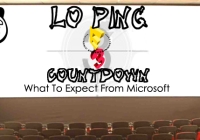Born Digital
By Lo-Ping - Mon May 16, 12:12 pm
- 0 Comments
- 180 views
- Tweet
 Email
Email
 Print
Print
There is always a danger in the mainstream publication of the representation of the new digital age generation, and that is the concern of who the targeted audience is. That’s very much the way when I picked up Growing Up Digital: The Rise of the Net Generation written by Don Tapscott which very much felt as if it was written from the perspective of a businessman. (That in of itself is ironic as Don Tapscott, himself, is a lawyer and does work in business think tanks.) Not just that, but as someone from the baby boomer generation it is comical coming from the other side of the looking glass. It reads almost as common sense for those of us born in the period of the digital age, especially gamers who have been part of this digital networking phenomenon from an early age.
All pandering aside, the book raises many legitimate and critical points about the massive shift towards the concerns of quality of information now that everything is moving online which proved to be somewhat eye-opening from someone born in the Wikipedia era. We ought to know, because as part of students growing up, we have had the same argument with teachers and to a lesser extent, professors on why Wikipedia is not a credible source. There is the common argument that anyone with a Wikipedia account can modify articles. Stephen Colbert, in his Word of the Day segment, pointed out this alteration of events coined the term “Wikiality,” or the reality which is set upon what Wikipedia says.
But the problem with Wikipedia and sources of the like is that there is a phenomenon in sociology called thin-slicing, that writers like Malcolm Gladwell elaborate on in the book Blink which is the phenomenon of finding patterns in narrow windows of experience. In this context, it refers to the relevance of what a site like Wikipedia is used for such as researching a historical event. But the problem lies in the loss of that specific context of which a well written academic source such as an article or a book explains. The difference being that a thin-slicing of information does not give you the contextual importance of something whereas a well-established source will perhaps teach you outside the realms of a particular assignment.
Ultimately I want to make an extended analogy on the rise of the infamous jenkem. What jenkem was, was a purported hallucinogenic drug concocted from the mixture of defecation and urination into a bottle and collecting the methane released from it in a balloon tied over the mouth of the container which is then subsequently inhaled. Jenkem, or its slang term, “butt hash,” obviously is not real. It was started over the internet by people who were goofing off looking to start a meme. A user named “Pickwick” picked this up and because of his notoriety of inhaling household substances like Raid, and tried it out only to realize that it was a hoax, not before removing the pictures of him doing so. But because of the rapid absorption of information on the internet, jenkem had already gone viral and was picked up by the local sheriff’s office who then distributed warnings of the so called drug. It proliferated to Fox News and other local news stations where they talked about the dangers of being addicted to jenkem to the point where Fox News called it butt hash.
So the next time anyone tries to cite Wikipedia as a source, know by ways of extended metaphor that they are warning people of the dangers of butt hash and how powerful such an illicit substance is.
- 0 Comments
- 180 views
- Tweet
 Email
Email
 Print
Print




